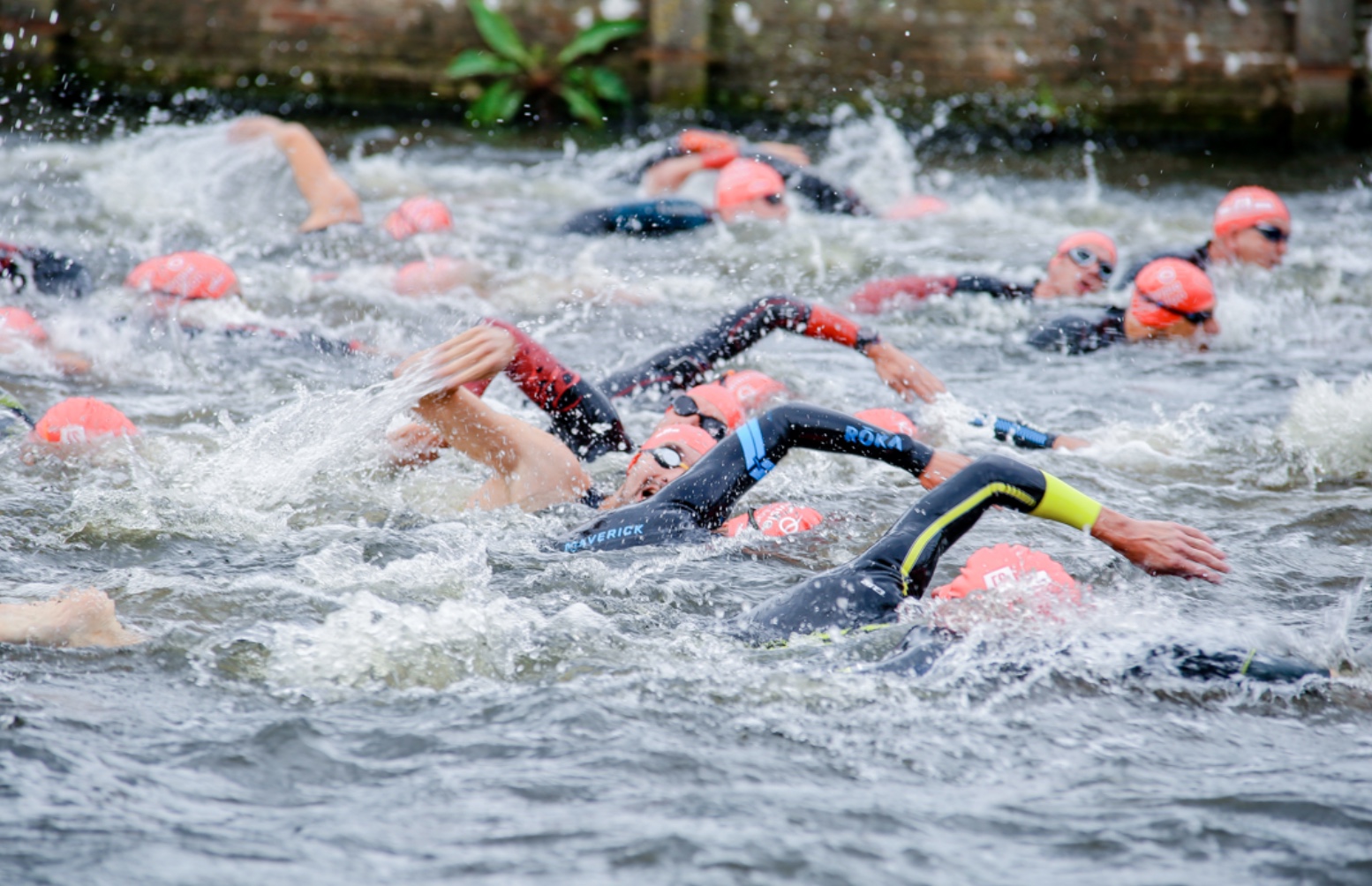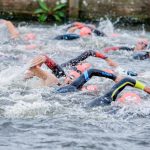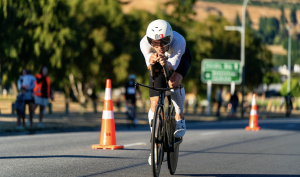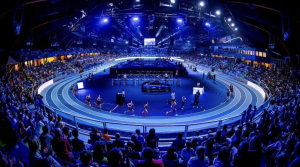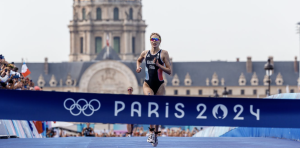World Triathlon has outlined the process followed to approve its Transgender Policy. The new policy does allow racing opportunities for trans women in elite or age-group triathlon. The stance by the international federation is counter to that of some other sports. For example, FINA has recently barred trans women from competing in female competitions.
Starting point
World Triathlon notes that its starting point was that there was no regulation within triathlon of transgender athletes… ‘therefore, any triathlete would be allowed to participate in the category according to the gender reflected within his/her official passport.’
World Triathlon commenced its research into this matter in 2019, when it appointed the Medical Committee Chair to participate in discussions and working groups with other sports organizations. Since then, there has been close contact with other international federation’s medical committees and the FIMS (International Sport Medicine Federation) experts in this field, as well as with the IOC Medical Commission.
Since 2019, World Triathlon adds that all the recent literature has been evaluated by the Medical Committee, including the references of the FIMS 2021 Consensus Statement (‘Integrating transwomen and female athletes with DSD into elite competition’) and ‘The current knowledge on the effects of gender-affirming treatment on markers of performance in transgender female cyclists’ (UCI, 2022).
World Triathlon Executive Board involvement
In November 2021, the President received from the Medical Committee a request to adopt a regulation for transgender athletes as other international federations had started regulating this matter and the IOC published its framework and recommendations. Additionally, the British Triathlon Federation expressed the same need for regulations.
In a meeting on March 10, 2022, the Medical Committee presented the first proposal of rules for transgender athletes, proposing a policy with a limit of 5 nmol/L for transgender women, based on their research and a statement of the International Federation of Sport Medicine (FIMS) and European Federation of Sport Medicine (EFSMA) on the IOC Framework On Fairness, Inclusion And Non Discrimination Based On Gender Identity And Sex Variations, which was in line with other IFs such as UCI, FISA and WA, among others.
World Triathlon’s Executive Board asked for more information before adopting the proposed policy and requested a session with Professor Yainnis Pitsidalis, member of the IOC Medical Commission, to explain the matter from a scientific point of view. In addition, the board engaged with the Athletes and Women´s Committees, as well as the EDI (Equity, Diversity and Inclusion) Commission, for their comments and proposals.
The World Triathlon board then requested the following:
- A legal study of the issue to be completed by the Legal & Constitution Committee.
- A summary of data on the known numbers of transgender athletes and existing policies for regulations of the transgender athlete participation in triathlon from national federations within their own territories to be completed by the Secretary General.
- A summary of all the regulations for transgender athletes in other international federations, to be completed by the Secretary General.
- A report reflecting engagement with and feedback from the transgender community.
On April 26, World Triathlon President Marisol Casado sent a communication to all triathlon national federations requesting them to provide information about any regulations currently in place in their countries regarding transgender and non-binary triathletes and about the existence of any triathletes registered as transgender and/or non-binary athletes within their national federation.
In July, the Equity, Diversity and Inclusion Commission hosted 12 hours of meetings with experts as set-out below. One representative from each of the Legal & Constitution, Athletes, Women´s and Medical Committees were invited to attend these meetings. Presenters were introduced to World Triathlon through the Medical Committee, the IOC, and other sources.
- Drs Ross Tucker and Emma Hilton, sports scientists
- Roger Pielke, Director of Sports Governance Center at University of Colorado, Boulder
- Chris Mosier, Rach McBride, Verity Smith, Patti Actually – transgender and non-binary athlete panel hosted by Anne Lieberman at Athlete Ally
- Dr Joanna Harper, medical physicist at Loughborough University
- Dr Veronica Ivy, cyclist & transgender rights activist
- Dr Alun Williams, Professor of Sport and Exercise Genomics, Manchester Metropolitan University
- Annet Negesa – DSD athlete panel hosted by Payoshni Mitra of the Global Observatory for Gender Equality and Sport
- Dr Ada Cheung, endocrinologist at the University of Melbourne
- Dan Berezowsky, Senior Advisor at Shift
- Allison Sandmeyer-Graves, CEO of Women and Sport Canada
- Dr Madeline Pape, Olympian, sociologist and IOC Human Rights expert
Approval of the transgender policy
The World Triathlon Executive Board meeting was held on August 3. All but one of the board members were present. During the meeting, the following committees & commissions presented their proposals:
- Medical & Antidoping Committee: a new proposal of 2.5 nmol/L, based on the level of testosterone circulating in cis women is 0.12 – 1.79 nmol/L (Bermon et al 2014, Handellsman et al 2018) and considering that the 99.99% of the confidence interval the highest value of testosterone is 2.44 nmol/L, the maximum serum testosterone concentration required is defined as 2.5 nmo/L, with a period of two years.
- Athletes Committee: a proposal of Natal Female Category and an Open Category.
- Coaches Committee: a similar proposal as the athletes.
- Legal & Constitution Committee: a legal analysis of the existing cases and proposals by the Athletes and Medical & Antidoping Committees.
- Women´s Committee: a proposal to maintain Natal Woman Category for now to protect cis women athletes, hoping to include transgender athletes in the best way when fair and more accurate conditions are available (i.e. 2.5 nmol/L and its two years affirmation).
- The EDI Commission: a proposal of 2.5 nmol/L, for two years period and with a Cap-Tie rule for four years, for athletes coming from any sport.
After the presentations made by all committees and commissions, the board members discussed the matter and approved the new policy, based on the Medical & Anti-Doping Committee proposal with the additional requirement that transgender women must not have competed in the male category in any sporting competition for four years.
World Triathlon adds that the new policy is based in the following factors:
- The use of testosterone concentrations to regulate the inclusion of transgender women into the female category is currently the primary biomarker that is supported by most scientific literature.
- Despite the lack of knowledge and research on transgender women athletes and based on the most recent literature (Harper et al 2021, Hilton et al 2021, Roberts et al 2020) the potential advantage in muscle strength/power of transgender women cannot be erased before two years of testosterone suppression (Roberts et al 2020).
- Triathlon-specific research on transgender athlete performance does not currently exist. We must consider that triathlon is an endurance sport and not a strength/speed sport, and consequently the studies should give relevance to all the physiological aspects required in triathlon, including strength and stamina.
- With data showing reductions in Hct and Hb following three or four months of testosterone suppression to the same levels of cisgender women with decreased oxygen capacity (Harper et al 2021, Gooren et al 2004)) and the typical increase of bodyweight and total body fat after the treatment (Klaver et al 2016,2018), the evidence on transgender women’s sporting performance is scarce and in case of aerobic performance is not existent (FIMS 2021 consensus statement).
- The level of testosterone circulating in cis women is 0.12 – 1.79 nmol/L (Bermon et al 2014, Handellsman et al 2018) and considering that at the 99.99% oconfidence interval the highest value of testosterone is 2.44 nmol/L, the maximum serum testosterone concentration required is defined as 2.5 nmo/L.
- We need to improve and support future longitudinal studies of transgender women athletes in endurance sports and triathlon, in order to better ascertain the appropriate indices of performance.
- Whether a person is a female is a matter of law and making a rule for transgender women is discriminating them indirectly, which is allowed if there is peer reviewed scientific evidence of unfairness and/or insecurity, but it is for the rule maker to prove this in their sport and the respective discipline(s).
- In addition, this new policy is in accordance with the IOC recommendations on this matter and the World Triathlon Legal & Constitution Committee’s recommendations.
World Triathlon adds that… ‘it is important to acknowledge that this policy is a ‘living document’, and it is expected to be updated according to the latest scientific research on this matter.’

